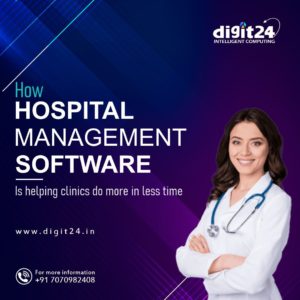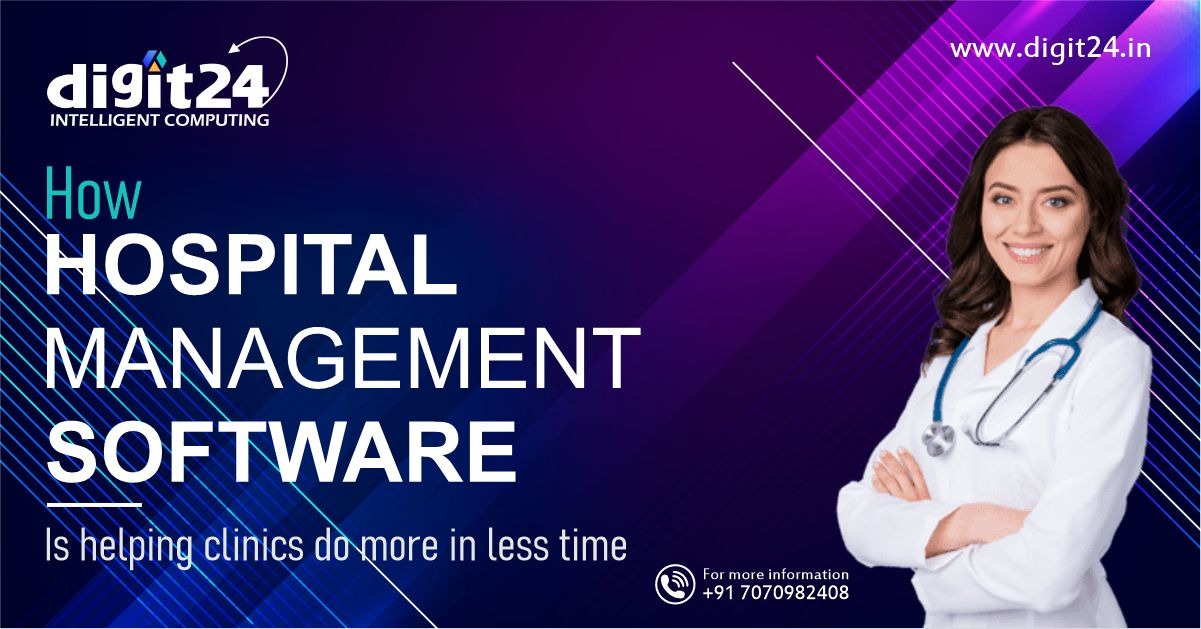Hospitals have become an important and essential part of the current digital world, and every human being in need of their services. In such a situation, the hospital should take good care of things to track the reports of its patients. Hospital Management System (HMS) is currently the most popular practice for clear and quick tracking of every detail of the patients.
Hospital Management System is a software system that makes back-office activities, administrative and clinical activities paperless. This means you can save a lot of time and money as they are able to handle every operation in the hospital. Healthcare IT solutions play a vital role in enhancing services in healthcare by managing your patients’ bills, reports and other activities.

To Get Best Pathology Lab Management Software : CLICK HERE
Technology acts as a bridge between the healthcare system and people leading to excellent health services. Many staff at health centers are also gaining a good insight into trending techniques to provide the best for their patients, such as providing them with the necessary rest and time. There are many modules that provide Hospital Management System i.e.
- Administrator – The main module of HMS, who has every permission and authority to handle the various modules of the hospital.
- Patient Management: Module that deals with complete management and patient care related to OPD, Reception Desk, Radiology, Laboratory, IPD, and more. In addition, they also control visitors, appointments, and other aspects of outdoor and indoor patients.
-
Stores and Pharmacy: The module deals with drug stock and other relevant records.
-
Human Resource and Personnel Management: The module manages hospital payroll features such as leaves, bonuses, incentives, officiating management payroll modules, daily attendance, pay slips, salaries, and much more.
-
Finance Management: The module is needed to eliminate paperwork as the financial department is an important part when considering hospitals.
- Clinical Services: This includes Operation Theater Management, Housekeeping, Diet, Waste Management, Ambulance Management, Morgue Management, Maintenance, Laundry and much more.
Top 9 Hospital Management Tips
Effective management is the key to the success of any business and the same can be said for the management of hospital systems. Here we explore the top nine management tips for running your hospital successfully.
1) Training of hospital staff
New staff introduced into the hospital must be competent hospital managers. Hospital staff should be encouraged to participate in ongoing training to enhance their skills. Therefore, current employees must be trained in both management and technology (such as cloud image storage), with in-house training also being offered.
2) Use Innovative Technology
Automation of hospital systems can be beneficial to everyone involved. For example, the use of DICOM or cloud image storage can reduce the number of staff required and ultimately lead to more effective management of these areas of the hospital.
3) Accountability is important
Employees must be accountable for their daily, weekly and monthly tasks. If every staff member of the hospital adheres to it and is accountable for their assigned tasks including senior doctors, it creates better hospital management.
4) Establish a Managed Care System
A managed care system should already be implemented in hospitals, but its improvements could allow daily operations to be run more efficiently. This includes punctuality of physicians, no delay for operation and well managed stock of medicines in demand.
5) Develop an effective communication strategy
Communication can be a challenging area for hospitals, however, not addressing the lack of communication can lead to poor management. The communication channels should be adapted to the needs of the hospital.
6) Identify sensitive areas
It is important to know where your hospital is failing. Only by identifying these areas can you focus on the areas that are weak and work to strengthen them. The most qualified employees can be applied in these areas to ensure effective management.
7) Keep contact details updated
Hospital staff information can change without the hospital knowing. Therefore, it is important to update the contact details of the staff as outdated information can affect the patient and display incompetent management.
8) Oversee important departments
Departments such as the emergency department and admissions may require more attention in your hospital. Good hospital management is ensuring that the best people and systems are working efficiently in these areas.
9) Be patient focused
Regardless of any innovative actions you plan to initiate in your hospital, the main priority should always be the patient. Communicative staff or the latest technology will not matter if the patient is suffering. Therefore, effective hospital management lies in remaining patient-centred.

